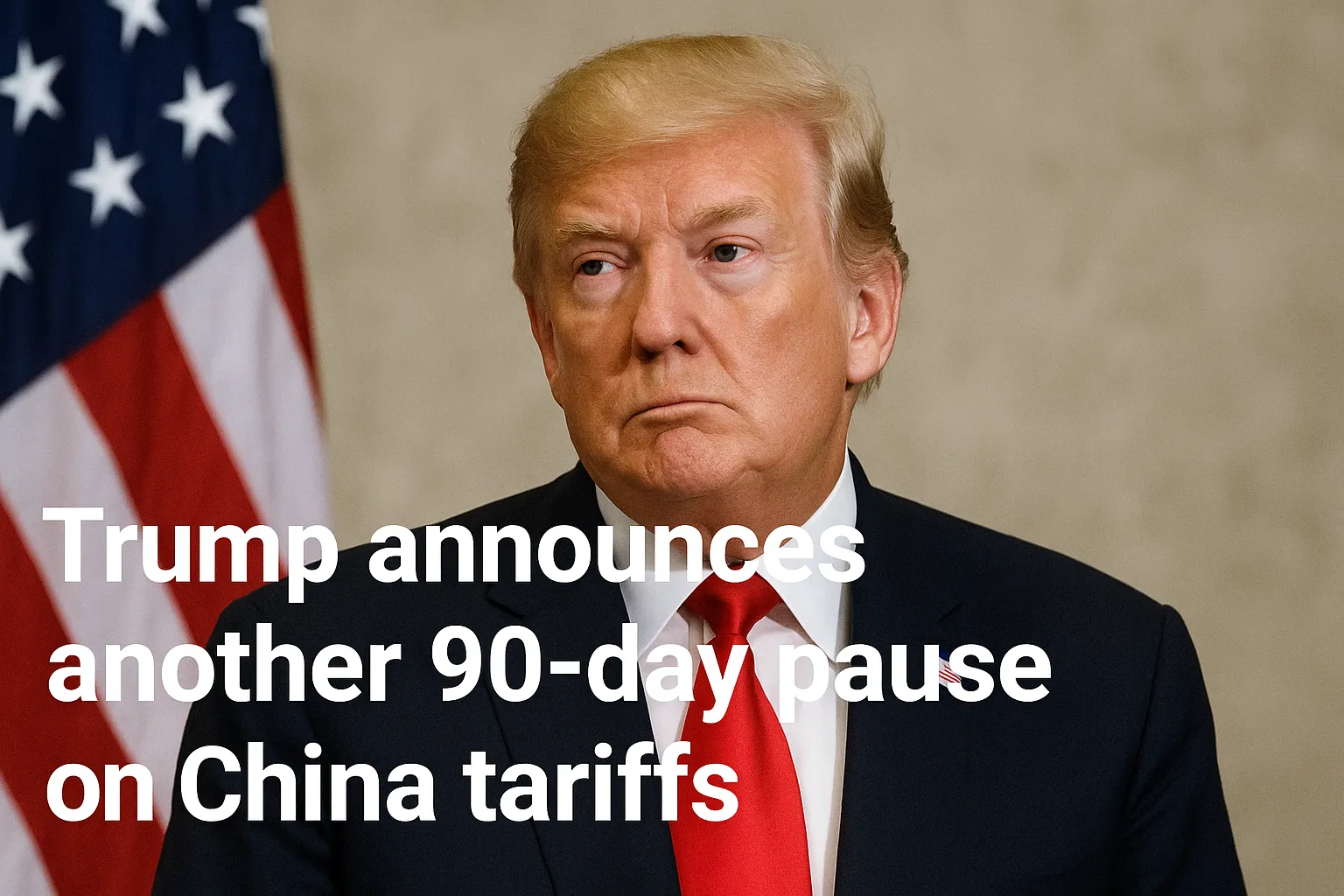Trump announces another 90-day pause on China tariffs
President Donald Trump announced another 90-day pause on tariffs imposed on Chinese imports, marking the second such extension in recent months. The decision comes as Washington and Beijing continue delicate negotiations aimed at reshaping their trade relationship.
Details of the Tariff Extension
The pause applies to billions of dollars worth of Chinese goods that had been subject to pending tariff hikes. According to the White House, the extension is intended to "allow both sides the necessary time to finalize a fair and balanced trade deal." The tariffs, originally set to increase in early summer, will now be delayed until the end of the 90-day period.
Administration officials clarified that this pause is not a rollback of existing tariffs, but rather a suspension of planned escalations. Key sectors affected by this decision include electronics, textiles, automotive parts, and agricultural products.
Impact on U.S.-China Relations
The tariff pause is seen as a temporary de-escalation in the trade tensions that have strained U.S.-China relations for years. While Trump described the move as “a gesture of good faith,” Chinese officials welcomed the delay but emphasized the need for mutual concessions.
“We are committed to achieving a balanced agreement that benefits both our economies,” Trump told reporters, adding that negotiators were “closer than ever” to a breakthrough.
Market Reactions
Global financial markets responded positively to the announcement, with major stock indexes in the U.S. and Asia rising modestly. Trade-sensitive sectors such as manufacturing and agriculture saw notable gains, while the Chinese yuan strengthened slightly against the U.S. dollar.
However, some analysts caution that repeated short-term pauses could create uncertainty for businesses. Many companies remain hesitant to commit to long-term investments without clarity on the future of U.S.-China trade policy.
Potential Benefits of the Pause
- Stabilizing Markets: The delay may calm investor nerves and reduce short-term volatility.
- Boosting Consumer Confidence: Avoiding immediate price hikes on imported goods could ease pressure on households.
- Supporting Diplomacy: More time for negotiators could increase the chances of a comprehensive deal.
Criticism and Political Reactions
Critics argue that constant pauses may signal weakness in the U.S. negotiating position. Some lawmakers also expressed concern that delaying tariffs without securing binding concessions from China risks losing leverage in the talks.
Conclusion
The 90-day pause offers a temporary reprieve for businesses and consumers caught in the crossfire of the trade dispute. Whether this extension will lead to a lasting agreement remains uncertain, but for now, both Washington and Beijing appear committed to keeping the door open for diplomacy.

